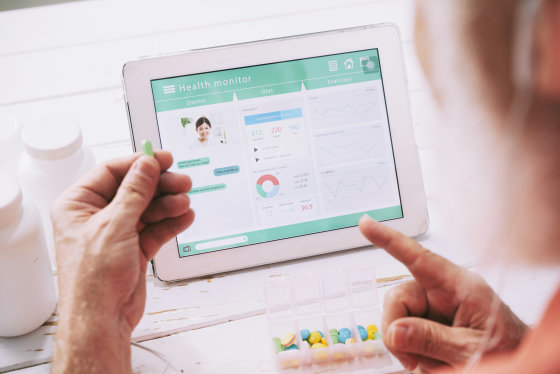What is the probability of an online disease diagnostic tool or app making a correct diagnosis?

Finding out if you're sick on a website or app can increase the anxiety that you're sick,
The quality of diagnosis and triage advice provided by free online symptom checkers and apps in Australia-Hill--Medical Journal of Australia-Wiley Online Library
https://onlinelibrary.wiley.com/doi/full/10.5694/mja2.50600
ECU | New ECU research finds'Dr Google 'is almost always wrong: News: News
https://www.ecu.edu.au/news/latest-news/2020/05/new-ecu-research-finds-dr-google-is-almost-always-wrong
It's Official: Study Shows Dr Google Really Is Wrong More Often Than Not
https://www.sciencealert.com/here-s-why-googling-your-symptoms-instead-of-seeing-a-doctor-is-a-really-bad-idea
Michela Hill and colleagues at Edith Cowan University analyze the accuracy of popular and free websites and apps that diagnose diseases online. The researchers tested 48 illnesses by populating websites and apps with symptoms that patients often complain about.
The diagnostic checkers used in the experiment were classified into a symptom checker (SC) that provides diagnostic information and a triage SC that informs the urgency. When we first analyzed SCs that provided diagnostic information, the probability that 27 SCs used in the experiment made a correct diagnosis was 36% of the total. This means that when someone uses SC, two-thirds of the diagnoses may be wrong. In a 2015 study, Harvard researchers also set the online symptom checker's accuracy to 34%, which was very close to the current study. This can be read as the fact that 5 years did not increase the reliability of the symptom checker.
On the other hand, in the case of Triage SC, where websites and apps recommend visits based on the symptoms entered by the user, 60% is appropriate for those with high urgency, and it has been found that the reliability is high. However, in the case of less urgent advice, its reliability will drop to 30-40%. Mr Hill says of this result, 'you may get emergency medical care when you don't need it.'

Researchers also note that not all websites and apps have the same error rate, and SCs that make diagnoses based on artificial intelligence algorithms and demographic information are more reliable than other SCs. I will. However, there are some such services, and there are differences in accuracy depending on the service.
'Diagnosis is not a uniform assessment, it requires knowledge, experience, clinical trials, testing, time lapses, etc., and is not a replacement for a single online interaction,' Hill said. While recognizing the usefulness of online diagnosis, researchers cautioned against the idea that online diagnosis, which does not grasp past medical history and symptoms other than input contents, can substitute for doctors.
Related Posts:
in Web Service, Web Application, Posted by darkhorse_log







